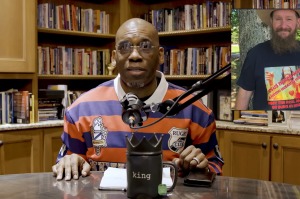Homeschooling and Charter Schools Growing, Give Families Options
Our education system is broiling with two major, conflicting trends: Centralization and school choice. The most rapidly growing trend is the explosion of growth over the past decade of enrollment in charter schools and homeschooling.
Homeschooling has been growing by 7 to 8 percent for the past decade, according to the latest data from the Census Bureau. Enrollment in charter schools-a new type of public school-has tripled in the past decade. Both now boast approximately the same number of students, 2.5 million each, which together comprises about one in ten of all school-age U.S. children.
Public school enrollment over the same period has also increased about 2 percent. It's important to note that recent figures bandied about the Internet claiming "seven times faster enrollment growth in homeschools than public schools," are false. More importantly, all these numbers point to how U.S. education is quickly changing at the margins, even as most public schools face yet another consolidation movement known as Common Core national education standards.
Homeschools and charter schools give families options outside "the system." And families obviously like these nontraditional choices-a lot. These enrollment and related political shifts indicate two great dangers and one great opportunity.
Because charter schools are fully public schools, though granted extra flexibility in exchange for possible shutdown if students don't learn, they operate inside the same public school system that homeschooling parents soundly reject. Right now, all public schools are in the throes of entirely revamping their curriculum according to one national plan, Common Core, and its associated national tests. The danger for charter schools is that such increasing regulations inch them closer and closer to the traditional schools they're supposed to improve. This danger is reflected in charter performance. States that strike the right blend of freedom and oversight have charter schools that, on average, outperform other public schools. In states that don't, the charter experiment isn't working so well.
Another danger is research from the Cato Institute and Census Bureau showing that more charter schools means fewer private schools. Just this year, stats came out putting private school enrollment at a 55-year low, and Census Bureau researchers attributed this slide largely to charter school growth. This is a big problem because religious schools, which make up the bulk of private schools, have possibly the best track record of all education options in helping children grow into happy, successful adults. Students attending religious schools are, on average, a full year ahead of their peers in public schools, including charter schools, according to a 2012 study examining 90 other high-quality studies. Even after author William Jeynes controlled for parent involvement, income, race, and sex, the average religious school student still came out seven months ahead. The highest-quality research on private schools shows their students are more civically engaged and better educated.
Charter schools often benefit students, and at a cost most people can't turn down: Free. In fact, all three school choice avenues are far less expensive than traditional public schools. But expanding charters should not mean contracting even higher-quality private options in any country that cares about academic excellence and children's welfare.
Like private school students, homeschoolers perform above-average academically, regardless of their parents' education level or income. Research also shows they are more emotionally and socially mature. So this enrollment growth presents a great opportunity for all parents interested in an education that better fits their children and lifestyle. It is not likely, given its history and character, that homeschooling will become just another intellectual restaurant serving a predetermined menu. But that danger does exist for charter and private schools now that all tests and most curriculum in the country are locking into the Common Core groove. What happens as these two trends of greater freedom and greater centralization collide still remains to be seen.



























